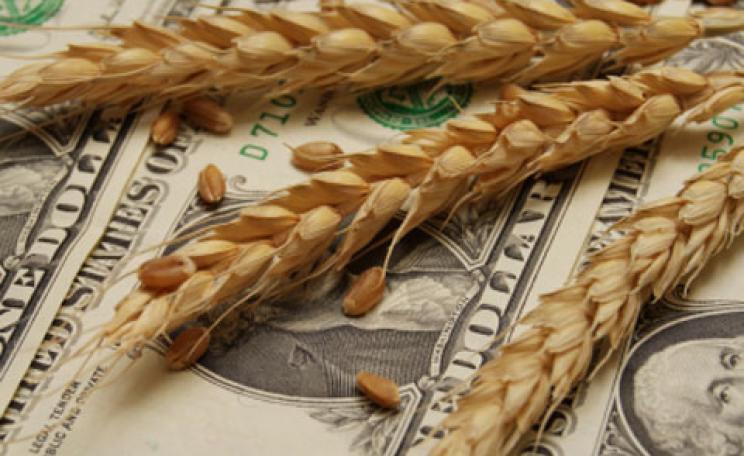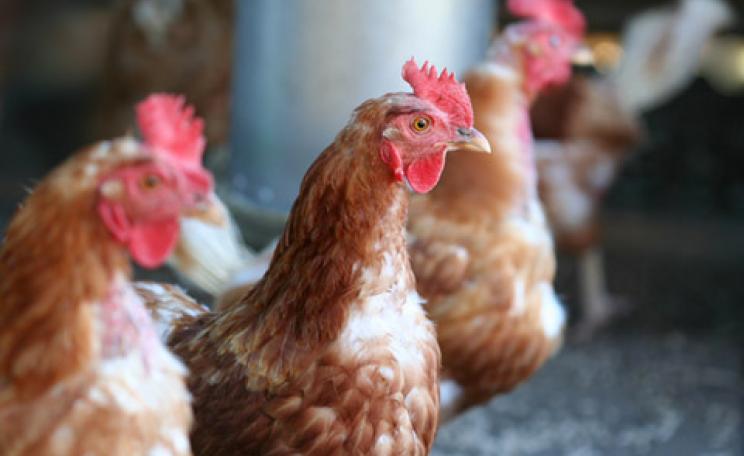Dramatic food price rises in 2007/8, fuelled by financial speculation, saw the price of wheat go up by 80 per cent and maize by 90 per cent
Banks such Goldman Sachs are making huge profits by gambling on the prices of key commodity crops such as coffee, cocoa and wheat, according to the campaign group the World Development Movement (WDM).
By creating funds to allow investors to speculate on the price of food, in the same way they would invest in the shares of a company, banks are able to bet on the price of food.
However this is leading to higher and more volatile prices which make it more difficult for farmers to plan and invest and also lead to damaging price rises - such as those witnessed in 2007/8 - which hit the poorest families in less industrialised countries hardest.
Only last month, says WDM, the price of coffee jumped by 20 per cent in three days, after a trader called the bluff of hedge funds that had made millions by selling coffee contracts and betting on the price to fall. This left hedge funds scrambling to buy actual coffee beans, and the price shot up from the extra demand.
'Nobody benefits from this kind of reckless gambling except a few City wheeler-dealers,' said WDM director Deborah Doane. 'British consumers suffer because it pushes up inflation, British companies suffer because of unpredictable oil and raw material prices, and the world's poorest people suffer because basic foods become unaffordable.'
Main perpetrators
The biggest banks involved in the trading are Bank of America, Citibank, Deutsche Bank, HSBC, Morgan Stanley and JP Morgan. Goldman Sachs alone is estimated to have made more than $1 billion from commodities trading in 2009.
WDM's new report, 'The great hunger lottery', calls for limits to be set on the amount that bankers can bet on food prices and for an end to secretive trading. The US has recently passed tougher regulation for the financial sector but WDM says similar reforms in the EU may not be agreed because of opposition from the City of London and UK Treasury, which still denies speculation played a significant role in the 2007/8 price spikes.
'Perhaps not coincidentally, London is host to the highest amount of commodity trading outside the United States. Recent opposition to EU regulation of hedge funds by the UK treasury shows that the UK government still gives a disproportionate voice to the financial sector at the expense of other sectors of the economy, and against the interests of citizens,' says the WDM report.
Useful links
The great hunger lottery: how banking speculation causes food crisis
| READ MORE... | |
 |
COMMENT Bond markets, not politicians, control our future We've lost control of our spending and debt to international bond markets and whoever wins the election won't be able to take it back |
 |
INTERVIEW Deborah Doane: a Conservative government could inspire activism The pioneering World Development Movement (WDM), celebrates its 40th anniversary this year. Its director Deborah Doane, says it now is considering more direct forms of protest |
 |
GREEN LIVING Each day, you have three votes to change the food system In this extract from Stuffed, Michael Pollan spells out the simple rules for buying and eating real food |
 |
REVIEW The End of Money and the Future of Civilization Thomas H Greco Jr's new book on money challenges the growth fetish and gives practical examples of how community-based exchange systems can save the economy, and the environment, from collapse |
 |
INVESTIGATION Killing fields: the true cost of Europe's cheap meat Cheap meat has become a way of life in much of Europe, but the full price is being paid across Latin America as vast soya plantations and their attendant chemicals lead to poisonings and violence |








